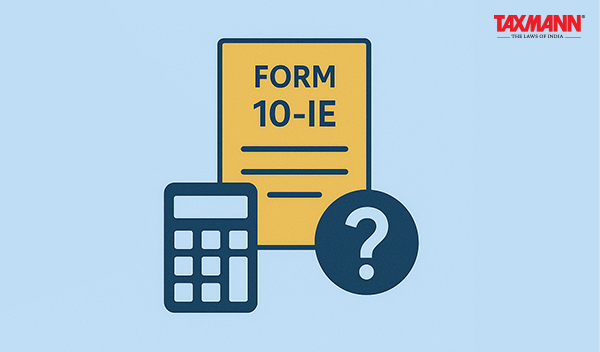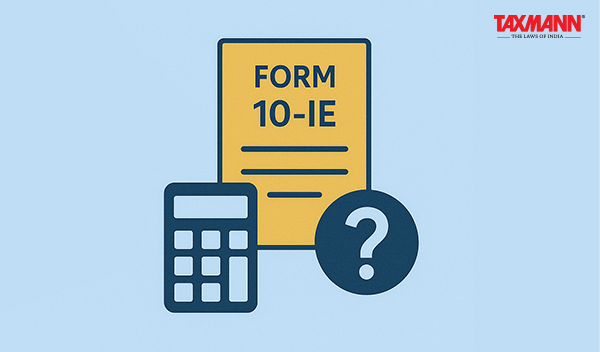
Amit Sharma – [2025] 174 taxmann.com 283 (Article)
Recently, the government has become strict with timely compliance and in order to promote the same, we have observed that the deductions/lower rate benefits are generally linked to timely filing of return and relevant forms.
And with this spirit, when in the year 2020 the government introduced the new regime of taxation (i.e. Section 115BAC) of the Income Tax Act, 1961 (the Act) and in this section option has been provided to choose between old tax regime with deductions and exemptions or new tax regime without deduction and exemption, it has specifically mentioned that if an Individual having income from business or profession is required to file Form 10-IE on or before the due date of filing return to claim the benefit of the lower tax rate provided under new regime.
However, there arose a very pertinent question before the courts whether the stringent requirement of opting the new regime (by filing the form 10-IE) within the due date mandatory or based on a genuine case, can there be some relaxation provided?
In the following paras, the author has made an attempt to answer this question, in light of the judicial pronouncements and the views expressed by various courts over this issue.
To begin with, I’d like to refer to the decision of Arun Gopilal Samnani [TS-479-ITAT-2025(Ahd)], where the learned CPC, Bangalore denied the benefit of the new tax regime under Section 115BAC of the Act. The benefit was denied in the intimation issued by the CPC under Section 143(1) of the Act based on the following facts:
- The assessee did not file Form 10-IE for the relevant year.
- The form was filed in the preceding year along with the return of income, but it was not submitted within the prescribed time. Consequently, the benefit of the new tax regime was not granted for the preceding year.
Aggrieved by the intimation order, the individual had filed an appeal before the Commissioner of Income Tax (Appeals) [CIT(A)]. However, the learned CIT(A) ruled that the assessee was not entitled to the benefits of Section 115BAC of the Act as necessary compliance was not done.
Against the CIT(A) order, the assessee filed an appeal before the Hon’ble Ahmedabad ITAT). Upon considering the contentions of both parties and reviewing Section 115BAC of the Act, the ITAT noted that:
- Individuals can opt for the new tax regime under Section 115BAC of the Act, provided their income is computed without claiming exemptions, deductions, losses, or depreciation as specified in section 115BAC(2) of the Act.
- The first proviso to Section 115BAC of the Act states that the option exercised by the assessee shall be invalid if the conditions in section 115BAC(2) of the Act are not met.
- Section 115BAC(5) of the Act requires individuals with business or professional income to file the prescribed form (Form 10-IE) by the due date initially, and this option would apply for subsequent years.
The Hon’ble ITAT concluded that:
- The failure to file Form 10-IE within the prescribed due date does not invalidate the assessee’s claim of the option. The requirement to file Form 10-IE is directory, not mandatory.
- The first proviso to Section 115BAC of the Act specifies what invalidates the exercise of the option i.e. where the person fails to satisfy the conditions contained in section 115BAC(2) of the Act in any previous year, the option shall become invalid.
- In the preceding year, the assessee’s option was not invalidated under Section 115BAC (2) of the Act, even though the form was not filed on time.
- Therefore, there was no need for the assessee to file a fresh Form 10-IE in the impugned year.
Click Here To Read The Full Article
The post [Opinion] Is Filing Form 10-IE Mandatory Under Section 139(1)? appeared first on Taxmann Blog.
